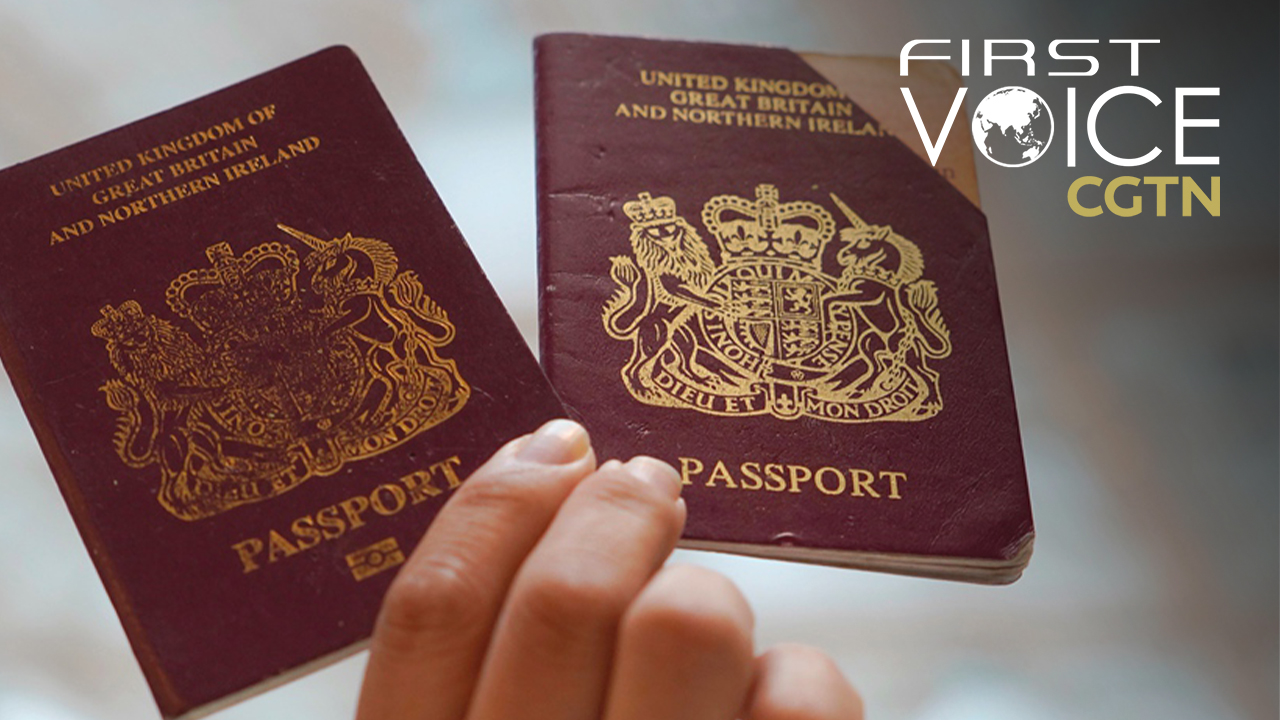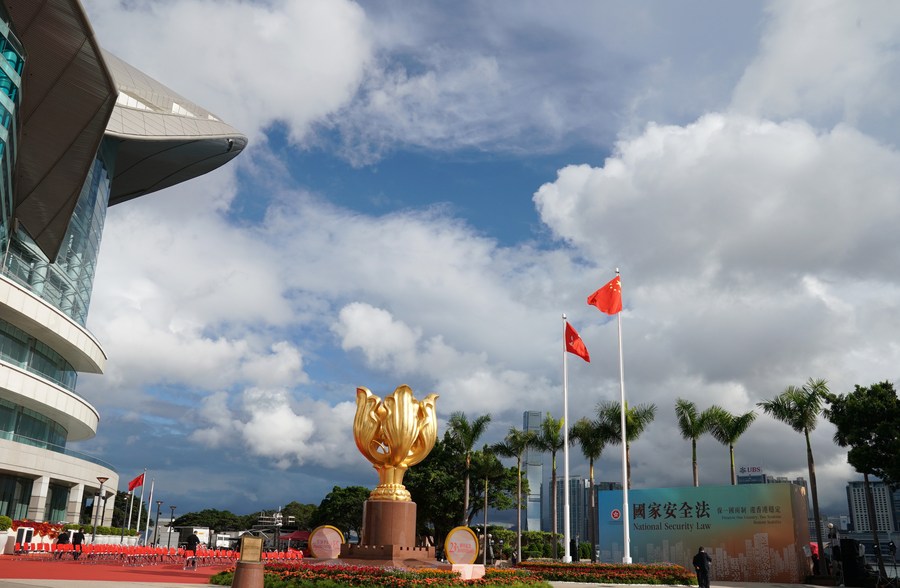
Editor's note: CGTN's First Voice provides instant commentary on breaking stories. The daily column clarifies emerging issues and better defines the news agenda, offering a Chinese perspective on the latest global events.
For the Boris Johnson administration, the sun still never sets on the British Empire. British tastemakers still set trends around the world. British trade dominates the seas. Everybody clamors to migrate to London.
This nostalgic logic drove Brexit, and is driving London's colonial insistence of continuing to dictate how Hong Kong is run, 24 years after the former colony was returned to China.
On January 31, Britain opened a path to citizenship to roughly 3 million people from Hong Kong in possession of British National Overseas (BNO) documents. Britain is framing this as a heroic, humanitarian move. This attempts to mask Britain's impotent hand in its showdown with China over how to manage the Western-backed rioting and insurrection in Hong Kong. The UK government's move is also good public relations for its domestic audiences.
But the truth is, educated, wealthy hardworking Chinese immigrants are encouraged and welcomed around the world. Their arrival in the UK would benefit a country struggling from the duel economic blows of an uncontrolled COVID-19 epidemic and a chaotic Brexit.
Some people from Hong Kong with an eye on educational or business opportunities will surely take advantage of this chance. To them, it will be a good chance to snatch up some relatively cheap London property. And for some wealthy families, they may flee because a member has been involved in activities aiming to undermine China. To them, good riddance.
But on the whole, only a small fraction of them will leave, for a variety of personal and economic reasons. Britain estimates that over the next five years, about 300,000 Hong Kong residents could migrate to the UK. In contrast, over the single year ending in March 2020, 403,000 people emigrated from Britain to other countries.

The Golden Bauhinia Square after a flag-raising ceremony held by the government of the Hong Kong Special Administrative Region to celebrate the 23rd anniversary of Hong Kong's return to the motherland, Hong Kong, July 1, 2020. /Xinhua
The Golden Bauhinia Square after a flag-raising ceremony held by the government of the Hong Kong Special Administrative Region to celebrate the 23rd anniversary of Hong Kong's return to the motherland, Hong Kong, July 1, 2020. /Xinhua
Hong Kong faces serious problems, such as economic inequity and the high cost of living and real estate. These problems, which still urgently need to be addressed, helped fuel frustration among youth in recent years. But there are many things keeping people in Hong Kong, includes ties of family and friendship, employment, the wonderful food and culture, and a bright economic future.
The vast majority of people in the city see their best hopes for a secure and prosperous future in aligning with their own country, not an ever-diminishing UK. Since Hong Kong was returned to China in 1997, Britain's GDP has risen 81 percent while China's has risen 14-fold. London's future as a banking center has dimmed with an ill-thought out Brexit, and the UK has without a clear plan forward cut off access to the giant EU market.
It appears Johnson is not interested in trade with China either.
He is deliberately poking Beijing in the eye by framing his gambit to attract Hong Kong money as some sort of noblesse oblige or White Man's Burden, when in reality high-quality migration can help Britain.
As a diplomatic response to Johnson's grandstanding, China has announced it will no longer recognize BNO passports.
These not-quite-passports were given to the not-quite-citizens of Hong Kong, who currently have more voting rights and more dignity than they ever did under colonial rule. This move will have little practical effect and will not impact people in Hong Kong who choose to move overseas.
However, it does make the symbolic point that the days of Britain's colonial meddling in Hong Kong are over.
(If you want to contribute and have specific expertise, please contact us at opinions@cgtn.com.)

